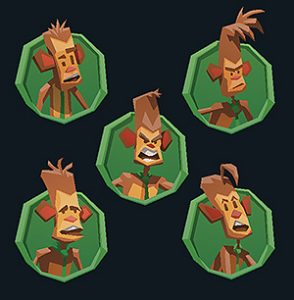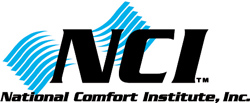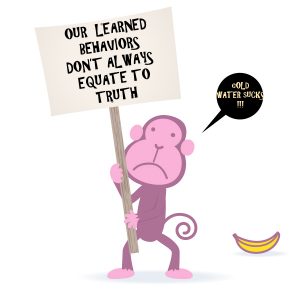When I was a kid, I didn’t know what my beliefs were, so I had a habit of constantly asking why. I questioned my mom and dad repeatedly on the things I didn’t understand. They patiently answered my questions and encouraged me to keep asking. If you’re a parent, you’ve no doubt experienced this with your children too. Kids are naturally inquisitive and love to gain new knowledge. Many maintain this zeal for learning, as they grow older, while others settle into a rut.
Depending on the responses you got to questions when you were younger, it shaped your views and beliefs. If you were encouraged to ask questions, you likely did so with no fear. If you were fussed at when you asked questions, you probably didn’t ask many out of fear of the response.
As the years add up, we forget where our views and beliefs came from in many instances. The questioning that led to these views and beliefs faded over time. They become ingrained as truths and we stopped questioning their origin. I was reminded of this principle while reading Michael Michalko’s book Thinkertoys.

“The Five Monkeys” is a chapter in a book called ThinkerToys. It is written by Michael Michalko and addresses issues with taking belief systems as the truth, when perhaps, they aren’t.
For those of us who pride ourselves on doing HVAC the right way, is it possible some of the things we believe to be right, aren’t right at all? Is it possible our perception is skewed based on how we originally learned the trade? There is a story in Thinkertoys titled “The Five Monkeys” that examines this issue from an interesting viewpoint. Here’s an overview of the story and look at what we can learn from his example.
The Five Monkey Beliefs System
In the story, five monkeys are placed in a large cage with a banana hanging from a string in the center of the cage. Underneath the banana is a set of stairs to allow the monkeys to easily reach the banana. After a few minutes pass, one of the monkeys sees the banana and moves towards the stairs. As soon as the monkey makes his way up the stairs, all five monkeys are hosed down with ice-cold water.
Some time passes and another monkey gets brave enough to make an attempt at the banana. All the monkeys in the cage are met with the same fate of ice-cold water on the second attempt. More time passes and another monkey tries to go for the banana, this time he is attacked by the other monkeys.
Is it possible that we have stopped challenging assumptions now held as truths in the HVAC industry? Have we stopped asking why and started blindly accepting things we are told instead of going out and proving it to ourselves?
The cold water is turned off and one of the original five monkeys is replaced with a new one. The new monkey immediately sees the banana and tries to go up the stairs after it. The other four monkeys immediately attack him. After a bit of time he tries again to climb the stairs and is once again attacked. The new monkey now knows you don’t climb the stairs or you’ll get the snot beat out of you.
Another one of the original monkeys is removed from the cage and replaced with a new one. The newest monkey heads straight for the stairs and is immediately attacked. The previous newcomer also joins in on the attack. This continues with a third original monkey being replaced with a newcomer. The new monkey goes for the stairs and is attacked. Two of the monkeys who are attacking him have no idea why they are doing it; they are just following the crowd.
The original fourth and fifth monkeys are soon replaced. All the monkeys who were originally sprayed with ice water are now gone, yet none of the replacements will ever again approach the stairs. Why won’t they approach the stairs? Because that’s the way it has always been.
Don’t Be Influenced By Monkey Beliefs
Is it possible that we have stopped challenging assumptions now held as truths in the HVAC industry? Have we stopped asking why and started blindly accepting things we are told instead of going out and proving it to ourselves?
How many new installers, technicians, and salespeople wanting to learn the origin of our industry are attacked for their questioning nature? They seek new information and ask questions about why things are done a certain way, yet get hosed with ice water hearing the words “this is the way it’s always been”. Do you see the parallel to the five monkeys?
As an industry we should never stop asking why. When we stop asking why, we begin to accept unfounded assumptions as truths. Have you ever accepted any of these assumptions as truth?
- The existing duct system works just fine
- My ducts should always be sized at .10
- There’s plenty of airflow because a register is blowing hard
- Tight ducts are right ducts
- Equipment rated at 20 SEER automatically operates at 20 SEER in the field
- You can fix the system by fixing the equipment.
If you do accept any of these assumptions as truth, you might want to start asking questions again and prove what’s truth and what’s fiction. Our industry has tons of opportunity that remains hidden because we quit asking why. Don’t let the fear of getting fussed at keep you from asking questions that get to the truth.
David Richardson serves the HVAC industry as a curriculum developer and trainer at the National Comfort Institute (NCI). NCI specializes in training focused on improving, measuring, and verifying HVAC and Building Performance. If you’re an HVAC contractor or technician interested in learning how airflow upgrades can help your company, contact David at davidr@ncihvac.com or call him at 800-633-7058. You can learn more at NCI’s website, www.nationalcomfortinstitute.com.







Leave a Reply
You must be logged in to post a comment.